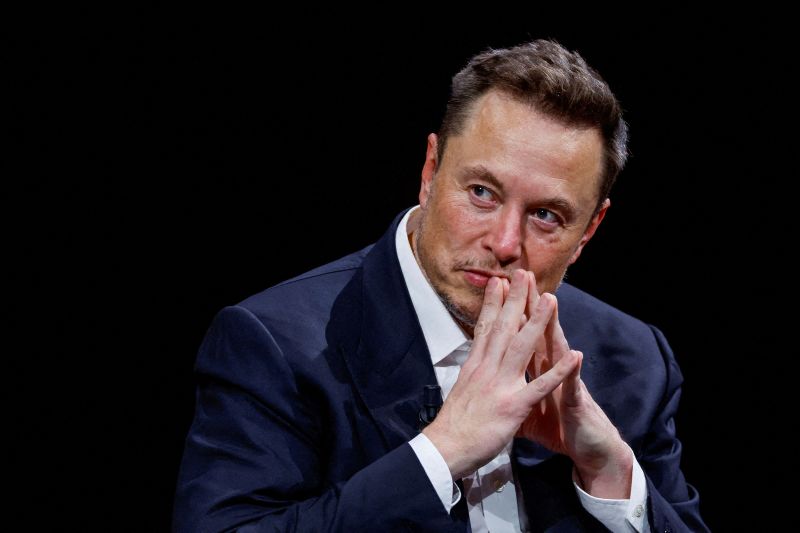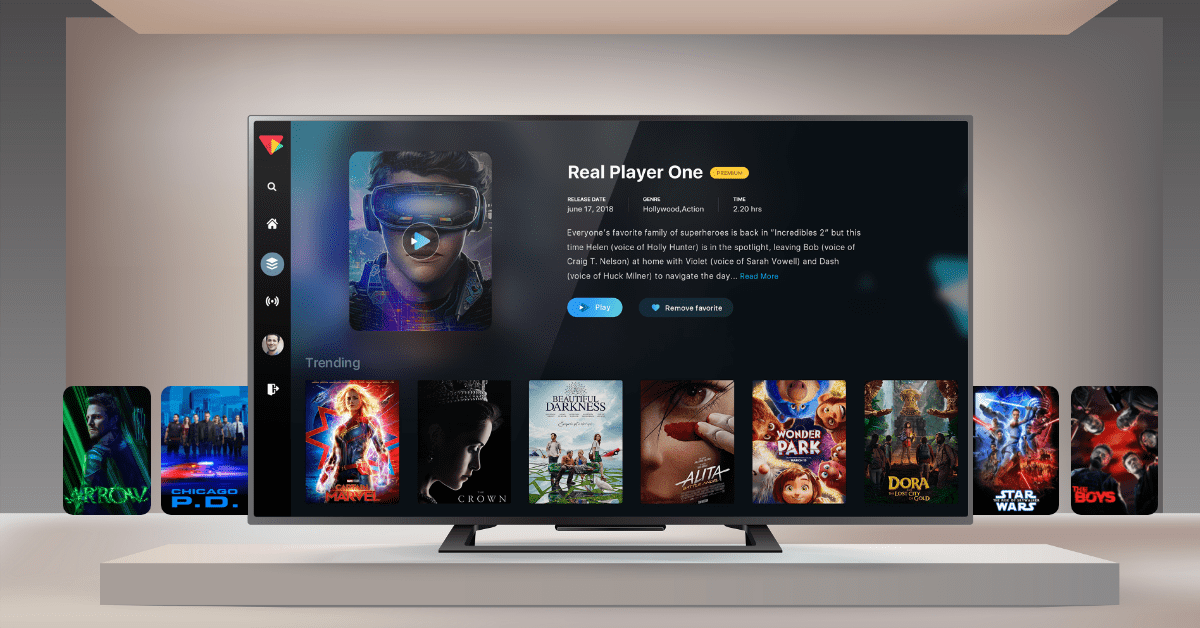Linus Torvalds and Bill Gates Meet for the First Time Ever
-
It's actually the perfect analogy, you just can't see it because you're stuck in the bubble.
If you think big tech doesnt cut corners and offloads the work to the users you are in a bubble; there's software that is secure, performant, pretty, doesn't break on its own, and doesn't have an obsolescency clock ticking inside. Oh, and doesn't spy on you dismantling society by the minute.
-
Name one bad historical person that didn't do at least some good.
Your moral compass is broken.
The charity did more than some good though.
Also, name one good historical person that didn't do at least some bad.
It is almost like things aren't black and white but more like Yin and Yang.
-
I've said this before here, but techy people vastly overestimate both the ability and the patience of the typical user, and it's the reason so few people use FOSS products.
Products from big tech aimed at private individuals are designed to be as simple to use as possible, which is why they're so popular.
And this in turn led to the younger generations being less tech-literate.
-
His pr firm really works well.
Check out when elon ditched his pr firm. He went frm that loved lil crazy fun type to what he really is.
Sure, and where is your proof that Bill needs one, let alone uses one?
And don't come with a list of actions the majority of people don't care about.
-
I've said this before here, but techy people vastly overestimate both the ability and the patience of the typical user, and it's the reason so few people use FOSS products.
Products from big tech aimed at private individuals are designed to be as simple to use as possible, which is why they're so popular.
Nah, I have worked in IT education and in helpdesk. Average user doesn't have a better time getting into Microsoft products, it's not easier for them than FOSS. The reason for Windows domination is Microsoft spending money and lobbying power to put it in front of every user.
-
That has to be one of the most out of touch takes I've seen in a while. You're basically saying that things should be intentionally more complicated, and you expect the result to be people just power through and getting used to things being that way, instead of just stopping.
Or instead just not hiding things that need not be hidden, like file extensions, despite your OS relying on them for identifying types.
-
Both Torvalds and Gates are nerds... Gates decided to monetize it and Torvalds decided to give it away.
But without Microsoft's "PC on every desktop" vision for the '90s, we may not have seen such an increased demand for server infrastructure which is all running the Linux kernel now.
Arguably Torvalds' strategy had a greater impact than Gates because now many of us carry his kernel in our pocket. But I think both needed each other to get where we are today.
But without Microsoft’s “PC on every desktop” vision for the '90s, we may not have seen such an increased demand for server infrastructure which is all running the Linux kernel now.
Debatable, in my opinion. There were lots of other companies trying to build personal computers back in those times (IBM being the most prominent). If Microsoft had never existed (or gone about things in a different way), things would have been different, no doubt, but they would still be very important and popular devices. The business-use aspect alone had a great draw and from there, I suspect that adoption at homes, schools, etc. would still follow in a very strong way.
-
Do you hunt for all of your food and cook it from absolute scratch?
I bet you sometimes use a grocery store.
Yet you still better know how to cook, despite convenience food existing. Hunting is more analogous to calling kernel interfaces.
-
That has to be one of the most out of touch takes I've seen in a while. You're basically saying that things should be intentionally more complicated, and you expect the result to be people just power through and getting used to things being that way, instead of just stopping.
To add to subignition's point, there is a value in learning useful software. More complicated software means that there is a learning curve - so while you are less productive while learning how to use it, once you gain more experience, you ultimately become more productive. On the other hand, if you want the software to be useful to everyone regardless of his level of experience, you ultimately have to eliminate more complex functionality that makes the software more useful.
Software is increasingly being distilled down to more and more basic elements, and ultimately, I think that means that people are able to get less done with them these days. This is just my opinion, but in general I have seen computer literacy dropping and people's productivity likewise decreasing, at least from what I've observed from the 1990s up until today. Especially at work, the Linux users that I see are much more knowledgeable and productive than Apple users.
-
Buddy, if I open Photoshop it's gonna take me hours to learn how to do one thing too, what a horrible example lmao. There's like so many easy slam dunks you could've said too.
Agreed. People just think the first tool that they learned is the easiest to use. I've been a longtime Gimp user and find it pretty easy to do what I want.* The few times someone asked me to do something in Photoshop, I was pretty helpless. Of course, I'm a pretty basic user - I wouldn't dispute that Photoshop is more powerful, but which one is easier to use is very subjective and the vast majority of the time, it just boils down to which one you use more often.
I've seen the same with people who grew up on Libreoffice and then started smashing their computer when they were asked to use MSOffice.
-
Bill Gates and Linus Torvalds have apparently never met in person before, despite their pseudo-rivalry.
Genuinely kind of surprised they only met now, one would have thought that in over 30 years they would have run into each other at some point at some conference or other.
-
Top comment on that page is perfect:
One wrote their own operating system incorporating others ideas on operating systems, the other's mom bought theirs.
Torvalds wrote the kernel, not the operating system. It's a part of the GNU/Linux OS

-
The charity did more than some good though.
Also, name one good historical person that didn't do at least some bad.
It is almost like things aren't black and white but more like Yin and Yang.
That's not how it works, it's not like "I do some good, now I can do some bad". It does not even out.
Bad people doesn't become good because "some good things came out of it".
If you do bad, then you are bad.
-
Sure, and where is your proof that Bill needs one, let alone uses one?
And don't come with a list of actions the majority of people don't care about.
Let me google that for you.
It's like asking for proof there is sand in the desert
-
It is the perfect analogy, because you are a techy, not a survival hunter.
You buying at a grocery store is out of convenience, the alternative is learning how to hunt like a survival hunter.
Just like how the average user wants the convenience of easy to use software, because they don't want to learn the alternative like you.
If everyone was like you, then easy to use software wouldn't be selling so much.
You buying at a grocery store is out of convenience, the alternative is learning how to hunt like a survival hunter.
At some point that was an alternative, but today the natural ecosystems have been so encroached upon by human civilization that we can't just decide to become survival hunters - we'd simply starve. Grocery stores are all you have if you're living in a high-rise apartment in most cities, for example. Most suburbs can't support enough wildlife to then be hunted for survival by the humans living there.
Vegetable gardens might be a better analogy than survival hunting. There are even some initiatives being taken to break the cycle of dependency that grocery stores encourage, which I suspect is what @subignition@fedia.io is getting at: collective effort is needed beyond just letting the techies do their thing in their own corner, otherwise we all suffer. Everyone needs to move beyond their comfort zone at some point, for some amount of time - be it the techies teaching others, or the others learning a bit more about how their tools work.
the average user wants the convenience of easy to use software, because they don’t want to learn the alternative [...] If everyone was like you, then easy to use software wouldn’t be selling so much.
I can't tell if you are simply stating how the world currently is or claiming that it is destined to always be that way, but in either case I don't see how "people prefer convenience" is a good argument against trying to help them get over that preference. I don't think convenience is nor should be the end-all-be-all of existence, in fact it can be actively detrimental to life when prioritized.
Unless I'm mistaken, the average user wanted asbestos in their walls, lead in their paint, and asked their doctor for menthol cigarettes instead of regular ones when said doctor was prescribing them for stress. The average user in the USA couldn't tell that their milk was full of pus and mixed with chalk to the point it was killing their babies, all for the convenience of still owners and milk producers. Their society had built up so much around the convenience of drinking milk in places that couldn't produce it locally, that it took an Act of Congress as well as the development of technology to safely transport milk long distances before the convenience stopped killing people.
Don't get me wrong, convenience is great when it doesn't come at the expense of our well-being - in those cases it tends to dramatically improve our well-being. I tend to agree with @subignition@fedia.io that currently the software market is overly delivering convenience to the point that it is negatively affecting our collective well-being - with regards to software, at the very least.
-
I said in another thread about this, he looks like an older Tom Scott.
About that, Tom Scott is also old now.
-
Now powered by Copilot!
CoClippy?
-
But without Microsoft’s “PC on every desktop” vision for the '90s, we may not have seen such an increased demand for server infrastructure which is all running the Linux kernel now.
Debatable, in my opinion. There were lots of other companies trying to build personal computers back in those times (IBM being the most prominent). If Microsoft had never existed (or gone about things in a different way), things would have been different, no doubt, but they would still be very important and popular devices. The business-use aspect alone had a great draw and from there, I suspect that adoption at homes, schools, etc. would still follow in a very strong way.
I remember that IBM was famously missing the trend in the late 80s/90s and couldn't understand why regular consumers would ever want to buy a PC. It's why they gave the PC clone market away, never seriously approached their OS/2 thing, and never really marketed directly to anybody except businesses.
Microsoft really pushed the idea that regular people needed a home PC which laid the foundation for so many people already having the hardware in place to jump on the internet as soon as it became accessible.
For a brief moment it looked like a toss up between Microsoft IIS webservers serving up .asp files (or coldfusion .cf - RIP) vs Apache pushing CGI but in the end the Linux solution was more baked and flexible when it was time to launch and scale an internet startup in that era.
Somebody else would have done what Microsoft did for sure, had they not been there, and I suppose we could be paying AT&T for Unix licenses these days too. But yeah, ultimately both Gates and Torvalds were right in terms of operating systems and well timed.
-
Bill Gates and Linus Torvalds have apparently never met in person before, despite their pseudo-rivalry.
Bill Gates is a monopoly capitalist with zero scruples. He screwed over so many people, vacuumed up so much wealth from all other sectors of the world economy. He has zero qualms about doing this either: There's video of his depositions in the anti-trust case against Microsoft, and the whole fucking time he just argues semantics in response to the questions, and when pressed after five minutes of defining every fucking word in a sentence, almost always claims he doesn't know or recall. Obviously a guy that thinks being as dishonest as it is possible to get away with is perfectly good business. And he does that despite whatever the outcome of the case, he'd be richer than billions of humans collectively. What pathology is this?
There's so much more shit, like the incessant lobbying for medical patents worldwide, or how, according to Melinda, Gates loved hanging out with Epstein.
Now, why would anyone want to have their picture taken with that guy? Torvalds is such an unprincipled lib.
Edit: Listened to some of the deposition in the background. Here Gates is being extremely annoying for example: The interviewer reads back an email from Gates saying something like "browser share is a very, very important goal for this company", and then asks what other companies he's comparing browser share with. Gates goes several minutes arguing he's not talking about any other companies, since literally there are no other companies mentioned in that very sentence, obviously pretending like he doesn't understand the question. If you listen to all the shit before, they have to go over whether "browser share" means "market share" (Gates says no), whether "very, very important" and "important" have different meanings (Gates says not necessarily, could be hyperbole), and that sort of stuff for minutes on end. Like seriously listen to this, I cannot even describe how stupid it is.
-
Giving away money? You sweet summer child.
Research don't want "his" (the foundations) money, it comes with so many strings attached all your lives work now belongs to the B&M foundation.
You sweet summer child.
Alright dude, I don't know much about the foundation, sorry.

 ️
️
-
-
Investigation: Israel's Unit 8200 built a system to collect millions of mobile phone calls made daily in Gaza and the West Bank using Microsoft's Azure platform
Technology 1
1
-
-
-
-
AI learns math reasoning by playing Snake and Tetris-like games rather than using math datasets
Technology 1
1
-
-
Time reporters were able to use Google's AI to make convincing videos of Muslims setting fire to a Hindu temple; Chinese researchers handling a bat in a wet lab; and election workers shredding ballots
Technology 1
1




